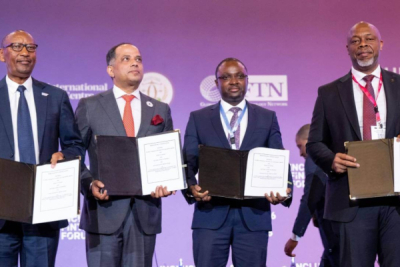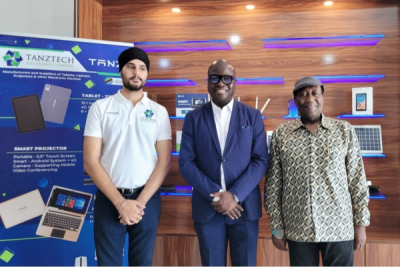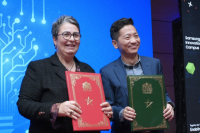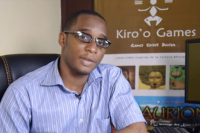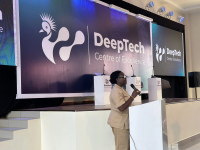Microsoft said Friday it will discontinue Skype in May 2025, ending the live communication software that helped popularize Voice over IP (VoIP). The decision is part of the company's strategic shift toward Microsoft Teams, a collaboration platform designed to streamline free communication services and meet users' evolving needs.
"With Teams, users have access to many of the same core features they use in Skype, such as one-on-one calls and group calls, messaging, and file sharing," said Jeff Teper, Microsoft's President of Collaborative Apps and Platforms. "Additionally, Teams offers enhanced features like hosting meetings, managing calendars, and building and joining communities for free."
Launched in 2017 as the successor to Skype for Business, Microsoft Teams gained widespread adoption during the COVID-19 crisis, particularly during lockdowns in 2020 and 2021. Microsoft said "In the past two years, the number of minutes spent in meetings by consumer users of Teams has grown four times, reflecting the value Teams bring to everyday communication and collaboration."
To minimize disruption for Skype users, Microsoft has implemented transition measures, including options to export data. Skype was created in 2003 by Swedish entrepreneur Niklas Zennström and Danish entrepreneur Janus Friis, and was acquired by Microsoft in 2011 for $8.5 billion.
Muriel Edjo
Niger is looking to digital transformation as a key driver for its socioeconomic growth. To achieve this, the government is committed to modernizing and strengthening its national telecommunications infrastructure.
Construction of Niger's national data center has reached 13% completion and is on track for completion by September 30. The nine billion CFA Francs (approximately $14.3 million) project, was discussed last week by the Minister of Communication, Posts, and Digital Economy, Sidi Mohamed Raliou, during a televised address reviewing his ministry’s work.
While the minister did not disclose specific details about the facility's capacity and technical features, he confirmed the data center will be Tier 3, based on Uptime Institute standards. This classification ensures multiple power and cooling pathways, minimizing downtime to 1.6 hours per year. The facility will store and secure public data in Niger.
The data center is expected to strengthen Niger's digital infrastructure, a key step in the country's digital transformation efforts.
According to the United Nations Department of Economic and Social Affairs (UNDESA), Niger scores 0.1578 out of 1 on the telecom infrastructure index, a component of the E-Government Development Index (EGDI). Niger's overall EGDI score is 0.2116, ranking 187th out of 193 countries. This is below the averages for West Africa (0.3957), Africa (0.4247), and the global average (0.6382).
In addition to the data center, Niger must expand telecom coverage and increase adoption of digital technologies. The International Telecommunication Union (ITU) estimates 3G and 4G networks cover 24% and 17.5% of the population, respectively, compared to 92% for 2G. DataReportal figures show Niger had 4.69 million internet subscribers at the beginning of 2024, with a penetration rate of 16.9%. Mobile phone penetration was 59.4%.
By Isaac K. Kassouwi,
Editing by Feriol Bewa
With the acceleration of digital transformation in Africa, cooperation between countries is becoming crucial. It facilitates access to technology, optimizes resources, and fosters innovation.
The Bank of Ghana (BoG) and the National Bank of Rwanda (NBR) signed a memorandum of understanding on Tuesday, February 25, during the Inclusive Fintech Forum recently held in Rwanda. The agreement establishes a "license passporting" framework, allowing fintech companies that comply with regulations to operate freely in both countries, facilitating their expansion while reducing regulatory barriers.
"The signing of this memorandum of understanding reaffirms our commitment to the broader idea of an integrated African market. It holds the prospect of enhancing the livelihoods of our citizens and creates opportunities for an environment that encourages fintech innovation and investment, ultimately benefiting our economies, particularly micro, small, and medium-sized enterprises (MSMEs)," said Johnson Asiama, former Deputy Governor of the Bank of Ghana.
This partnership aligns with a broader strategy to strengthen Africa’s fintech ecosystem and promote regional economic integration. Rwanda, which aims to attract 300 fintech firms by 2029, create 7,500 direct jobs, and secure $200 million in investments, recently launched a National Fintech Strategy and a national digital payment system. Ghana, a key player in financial technology, continues to enhance its payment infrastructure and support innovative initiatives.
By facilitating the integration of digital financial services, this agreement plays a vital role in advancing the vision of the African Continental Free Trade Area (AfCFTA) and accelerating the continent’s digital transformation. As Africa’s fintech sector experiences rapid growth, the continent has the potential to emerge as a global fintech hub—provided it can overcome challenges related to digitization and financial inclusion.
In 2024, African fintech startups raised $1.034 billion, accounting for 47% of all funding secured by startups across the continent, up from 42% in 2023, according to Africa: The Big Deal.
By Samira Njoya,
Editing by Sèna D. B. de Sodji
Launched by two Nigerians, the solution is part of various AI-enabled tools that aim to make education more accessible, interactive, and effective for all.
uLearn is a digital platform developed by the Nigerian startup EqualizAI. It enables users, particularly teachers, to generate lesson plans, notes, and quizzes in English and local languages. The startup, based in Lagos (Nigeria) and Washington, was founded in 2024 by Olubayo Adekanmbi and Ife Adebara.
"uLearn is designed to help teachers with their everyday tasks and workload from planning lesson notes to creating assessments so they can spend more time on what matters most - teaching and engaging their students. We understand that each classroom is as unique as its students. uLearn is your teaching assistant that creates content and resources tailored to your teaching style and the students’ learning needs," the startup explains.
After creating an account, teachers can develop educational content, including videos, interactive quizzes, and written materials, which students can then access to enhance their learning. Notably, uLearn can generate content in African languages, in addition to English.
Olubayo Adekanmbi said, "Our mission is to ensure that AI speaks our languages, understands our contexts, and addresses our unique challenges. This is not just about technology; it’s about empowerment and inclusion."
The platform also provides personalized tracking through analytical tools, enabling learners to measure progress and identify areas for improvement. The startup's flexible model is designed to accommodate professionals seeking to upskill without geographical or time constraints.
uLearn offers both free and premium subscription plans. The free version provides access to essential features, while the premium plan unlocks the full content library, advanced interactive tools, and personalized recommendations based on user profiles.
By Adoni Conrad Quenum,
Editing by Feriol Bewa
Digital transformation is a priority for Tanzanian authorities to drive socio-economic development. Achieving these goals requires expanding public access to digital services.
The Tanzanian government aims to support the development of its local ICT equipment industry, including phones, computers, and tablets, Nkundwe Mwasaga, Director General of the ICT Commission (ICTC), announced during a visit last week to the Tanztech Electronics Limited factory in Arusha. These efforts could improve public access to devices essential for digital services.
According to the GSMA, limited access to smartphones is a major barrier to mobile internet adoption worldwide. The organization estimates that in 2023, 40 million Tanzanians were not connected to mobile internet, while the country's population stood at 67.4 million, according to the World Bank. Official statistics indicate that by the end of December 2024, Tanzania had 47.85 million mobile internet users. However, this figure represents the number of SIM cards used to access the service, meaning some individuals may own multiple SIMs.
"President [Samia Suluhu] directed us to find investors who will establish factories to produce various ICT products here in Tanzania so that we can work together to drive the digital economy agenda," said Mwasaga. He added that ICTC will work with investors to ensure that locally manufactured products are both competitive and affordable for the population.
To achieve these goals, the government must address key challenges facing the local ICT equipment industry. Gurveer Hans, CEO of Tanztech Electronics Limited, highlighted the need to reduce tax burdens across the production and distribution chain in Tanzania. "We import raw materials from our partners in China, but we are burdened with heavy taxes, which make locally made products costly for consumers,” he explained.
By Isaac K. Kassouwi
Editing by Sèna D. B. de Sodji
The GSMA Innovation Fund, supported by the UK Foreign, Commonwealth & Development Office (FCDO), is providing grants to small and growing enterprises (SGEs) using AI and mobile technology to address socio-economic and climate challenges in low- and middle-income countries (LMICs).
The fund is open to for-profit enterprises with up to 250 employees. Eligibale businesses must be based in Africa, South Asia, Southeast Asia, or the Pacific.
Successful enterprises will receive grants ranging from £100,000 to £250,000 for projects lasting 15 to 18 months. They will also gain tailored venture-building support, partnerships with mobile network operators, and increased visibility through GSMA platforms and events.
The deadline for pitch submissions is 19 March 2025.
As digital connectivity expands across Africa and globally, ICT skills are in high demand. Recognizing this trend, Morocco is implementing strategic programs to prepare its youth for careers in the digital sector.
Samsung Electronics Maghreb Arab, the Moroccan subsidiary of South Korean tech giant Samsung, and Morocco’s Ministry of National Education, Preschool, and Sports signed an amendment to their partnership agreement on Wednesday, February 26, to enhance digital education in Morocco. The initiative aims to support educational development and equip younger generations with the skills to tackle future technological challenges.
"Samsung is committed to supporting education and innovation in Morocco, and we are delighted to strengthen our partnership with the Ministry of National Education. By integrating artificial intelligence into the Samsung Innovation Campus and launching the NationBy integrating artificial intelligence into the Samsung Innovation Campus and launching the National Hackathon, we want to offer young Moroccans opportunities to explore and develop their skills in future technological fields," said Hee Young Hong, President of Samsung Electronics Maghreb Arab.
This initiative builds on a collaboration established last year to strengthen digital education in Morocco through the Samsung Innovation Campus program. The program offers ICT training to young people seeking employment in the rapidly evolving tech sector. To date, it has trained 780 teachers, and 1,273 participants have taken part in nationwide Python programming courses.
For the Moroccan government, this initiative aligns with the Morocco Digital Strategy 2030, launched last September. The strategy aims to train 100,000 young people per year in digital careers, with a goal of creating 240,000 jobs in the digital sector by 2030 to meet the growing demand for tech skills.
According to a new report by the Brookings Institution, titled "Foresight Africa 2025-2030," an estimated 230 million jobs in sub-Saharan Africa will require digital skills by 2030. The report also anticipates up to 650 million digital training opportunities, representing a potential market of $130 billion. This trend underscores the importance of initiatives like Samsung’s, which aim to equip young Moroccans with the skills to become future leaders and innovators.
This renewed collaboration between Samsung and the Ministry of Education presents a promising opportunity for digital education in Morocco. By enhancing teachers' capabilities and providing students with essential tools to excel, this initiative could contribute to both local community development and the global digital economy.
By Samira Njoya,
Editing by Sèna D. B. de Sodji
Cameroonian authorities have centralized all online gaming payment solutions under a single operator. While justified by security concerns related to gambling, this move is negatively impacting the burgeoning African video game industry. In this interview, Olivier Madiba, founder and CEO of Kiro’o Games—Central Africa's first professional video game studio, recognized internationally for promoting African values through entertainment—discussed the detrimental effects of this government decision on his studio's operations.
We Are Tech: In a recent X post, you mentioned that the Cameroonian government's decision to grant exclusive online gaming payment rights to InTouch has disrupted your services. Could you explain how this decision has specifically affected your business as an online gaming provider focused on entertainment, not gambling?
Olivier Madiba : I believe the Ministry of Territorial Administration's directive was primarily intended for gambling and online lottery services. However, because the legal term "online games" was used, those of us in the video game industry, which falls under culture and entertainment, have been unfairly impacted.
It’s important to understand that we provide a cultural entertainment service. We offer video game enthusiasts a competitive alternative, allowing them to enjoy gaming experiences rooted in African cultural references. This is our way of contributing to a market largely dominated by Western or Asian models, particularly Japanese ones. In contrast, gambling and lottery games are financial bets that can generate monetary winnings and, indeed, may be used for money laundering.
To comply with the directive, we are now obliged to switch payment providers in just three weeks, after years of establishing stable payments with our existing provider. While many payment aggregators exist, very few are reliable. We had to painstakingly vet them, case by case, at significant research and development (R&D) cost.
Just as we were overcoming that challenge, being forced to use a single operator now poses a major threat to our digital economy. This monopoly gives the selected operator the power to dictate terms in the most critical area: cash flow.
To illustrate the impact, for over ten days, we've received no payments from our customers—not just for video games, but for all our cross-media activities, including coloring books, comic books, Rebuntu, and more. These are consequences the government should have anticipated. The onboarding process with InTouch is, understandably, lengthy, despite their team's goodwill.
For a startup like ours, if we were 100% dependent on the Cameroonian market, this decision could push us straight into bankruptcy. And yet, as I often say, I created this job from scratch—both for myself and for my team."
WAT: Given that the president has himself encouraged digital innovation, why is it vital to avoid exclusivity and prioritize a competitive environment within this fintech segment?
Olivier Madiba : Given that online payments in Francophone Africa are made at least 80% via Mobile Money—If I’m not mistaken—avoiding a monopoly in this sector is crucial for two key reasons.
First, many fintech companies that aggregate Mobile Money services count online gambling operators—lotteries, sports betting, and other online gaming platforms—as major clients. Removing this customer base would severely cut their revenue, threatening their survival and the jobs they support.
Second, competition among these fintech companies is key to ensuring quality service. Clients like Kiro’o Games have switched aggregators at least two or three times or use multiple providers simultaneously to maintain service stability. A monopoly would eliminate this crucial safeguard, eroding customer trust and damaging the entire digital ecosystem that's been built over years.
WAT : Do you understand the government's security argument for this decision? It seems that authorities have not fully grasp the consequences this could have on the digital product value chain. Given your experience and based on conversations with industry experts, are there viable alternatives to a single-operator monopoly?
Olivier Madiba : We understand and support the government's core decision to regulate and track financial flows related to online gambling. However, we believe this should have been done through discussions with key stakeholders who understand the ecosystem, ensuring harmony within the value chain and anticipating potential consequences.
It's important to recognize the fundamental difference between video game operators like us and gambling or lottery operators. Our players pay for an entertainment service they actively control. In contrast, gambling players pay for the uncertain hope of financial gain, over which they have virtually no control. This crucial distinction is why gambling requires a license, while our industry does not.
For instance, the government could establish clear conditions that payment aggregators must meet to process payments for online gambling, or even online gaming in general. These conditions could include mandatory participation in rigorous government audits or the implementation of monitoring and control protocols, similar to those in place for banks. Additionally, the government should clearly define "online gambling" to avoid conflating simple entertainment games with gambling, preventing unnecessary regulatory burdens on unrelated digital activities.
We also believe this decision should have been made in consultation with the Ministry of Finance and the Ministry of Posts and Telecommunications. These ministries have been instrumental in integrating finance and technology in Cameroon and could have provided valuable expertise. Their input would likely have helped anticipate potential implications and define appropriate measures to mitigate any negative impacts."
WAT : How is this decision being received in the fintech sector? Does it create regulatory uncertainty that could deter investors? Given that Central Africa, especially Cameroon, already attracts less venture capital than markets like Kenya or Nigeria, do you think this could further hinder investment in the region's fintech sector?
Olivier Madiba : We have closely followed the public policy developments on this issue, and indeed, the successive decisions made by the authorities have introduced a level of uncertainty. Fintech is highly sensitive to changes in the economic environment.
We are competing on a global scale, and to succeed, we need to operate as a united and well-structured ecosystem. In many countries where online payment services are thriving, regulation plays a crucial role. Just as a physical economy requires efficient financial infrastructure, a digital economy needs highly sophisticated payment channels. For investors, this demand represents a real opportunity, as every transaction generates fees.
Take, for example, the competition in money transfer solutions—it has clearly benefited customers. Costs have decreased, and transaction volumes have risen. Similarly, companies like ours have been able to grow in ways that would have seemed impossible a decade ago. Back then, few would have bet on the viability of such a business model.
From this perspective, introducing uncertainty or excessive market concentration in our digital economy would be a costly mistake in an increasingly digital world. While this monopoly decision may indeed enhance security, I sincerely believe we can achieve that important goal while maintaining a sufficient level of competition to protect consumers from the risks associated with a near-monopoly.
WAT : Can you provide a clear explanation of how the payment system functions in these transactions, outlining the roles of the key players? How has government intervention altered these dynamics, and what are the resulting opportunities and risks?
Olivier Madiba : Here's how a typical digital payment with Mobile Money works:
The customer initiates a payment in a video game (or application) where they want to purchase digital content–not for gambling.
The system prompts them for their phone number and email to generate a receipt.
Once the customer provides this information, Kiro'o's server connects with the payment aggregator's server.
The aggregator's server then communicates with the Mobile Money provider's server, either Orange or MTN.
The player completes the payment through Orange or MTN.
The payment confirmation is sent back to the aggregator, who then forwards it to us.
Finally, the player receives payment confirmation and the digital content within the game.
It took us years to refine this process. Finding a reliable aggregator to handle steps three through six flawlessly is incredibly difficult.
Many aggregators are simply unreliable. By imposing a monopoly on a single aggregator, you eliminate competition, which removes the incentive to improve their technology. This could result in payment failures in as many as half of all transactions. Imagine customers making payments that you can't validate, even though their money has been debited.
That's the risk inherent in this monopoly decision—it could severely damage hard-earned consumer trust, disrupt the payment value chain, and impede the president's goal of digitizing our economy.
Interview by Idriss Linge
As information and communication technologies (ICT) continue to expand, young people are demonstrating remarkable ingenuity in addressing the challenges of their time. Through the Orange Summer Challenge, telecom operator Orange showcases these talents and supports them in developing their innovative solutions.
Orange Summer Challenge, Orange’s international competition dedicated to responsible entrepreneurship in Africa and the Middle East, unveiled the winners of its 2nd international final on Tuesday, February 26, in Casablanca, Morocco. Three innovative startups were recognized for their potential impact: Plastikoo, MEPS, and Leevlong, selected for their solutions addressing environmental, health, and social challenges.
Over the course of three months, 282 young innovators from 14 countries received intensive support, including training, mentorship, and coaching provided by experts from Orange and its partners, including AWS, EY, and Nokia. In total, 57 startups emerged under the Tech4Impact theme, offering solutions in environment, health, education, and agriculture.
The first prize went to Plastikoo, a Malagasy startup that transforms plastic waste into sustainable construction materials, helping reduce pollution and promote sustainable community development. MEPS, a Tunisian startup that won second place, developed a solution to convert organic waste into biogas and fertilizer, contributing to the energy transition. Leevlong, a Cameroonian startup ranked third, offers a remote medical monitoring device for real-time patient tracking, improving healthcare management.
The winners will receive financial, technical, and commercial support from Orange Digital Centers and their partners. Nokia will provide a €40,000 grant to fund the pre-incubation and incubation of the projects, while Orange will contribute €20,000 to support these young entrepreneurs.
For Orange, this edition once again highlights the dynamism and creativity of young innovators. “For 15 years, the Orange Summer Challenge has supported thousands of young talents in their entrepreneurial journey. This new edition once again demonstrates the ability of African and Middle Eastern youth to innovate and address the societal challenges of our continent. Congratulations to the winners and all participants for their dedication and creativity,” said Brelotte Ba, Deputy CEO of Orange Africa and Middle East.
By Samira Njoya,
Editing by Sèna D. B. de Sodji
Manufacturing plays a crucial role in Africa's economy. Establishing these facilities is expected to further diversify the industrial base, foster resilience against economic fluctuations, and enhance self-sufficiency.
Uganda has launched a state-of-the-art Local Electronics Manufacturing Facility and the Deep Technology Centre of Excellence under the Ministry of Science, Technology, and Innovation. The initiative, unveiled on February 20, aligns with the government's commitment to Uganda’s National Development Plan III and strengthens the country’s position in high-tech manufacturing.
“This milestone is not only a leap forward in our Nation’s journey toward technological advancement and the qualitative leap but also a tangible demonstration of the Government’s commitment to operationalizing Uganda National Development Plan III, ” Minister of Energy and Mineral Development, Ruth Nankabirwa, stated in a LinkedIn post.
The Deep Technology Centre of Excellence is a modern facility dedicated to advancing innovation in emerging technologies, including Artificial Intelligence, Machine Learning, the Internet of Things, Robotics, Biotechnology, Advanced Materials, Cloud and Edge Computing, and Quantum Computing.
The launch highlights the power of public-private collaboration, with government ministries, private sector players, academia, and local communities encouraged to seize this opportunity for innovation and growth. The Energy sector is expected to benefit significantly from the local production of power meters at the center. This will enhance the national grid while enabling businesses and households to monitor and optimize energy consumption.
Beyond energy, the new facilities are set to create jobs, develop skills, and drive innovation, reducing Uganda’s reliance on imports and enhancing its global competitiveness. Officials emphasized that investing in local manufacturing will build a resilient economy and position Uganda as a leader in technology and industrialization.
Uganda's reliance on imported electrical and electronic equipment has been substantial, with imports projected to reach $429 million by 2028, up from an estimated $406 million in 2023. By investing in local manufacturing capabilities, the country can decrease this dependency, retaining capital within the economy and improving the trade balance.
Hikmatu Bilali
More...
It's clear that Tunisia, like the rest of Africa, is moving irreversibly towards a digital economy. The rising popularity of electronic payments is creating a more inclusive, secure, and globally integrated financial landscape.
In 2024, electronic transactions in Tunisia totaled 27.891 billion dinars (approximately $8.8 billion), marking a 10.6% increase compared to the 25.230 billion dinars recorded the previous year. These figures were revealed by the Central Bank of Tunisia (BCT) in its 2024 Payments Bulletin, published on Monday, February 26. The growth reflects the increasing adoption of digital payment solutions, including mobile payments, online transactions, and the wider use of bank cards.
The sector's expansion is also evident in the significant rise in the number of transactions, which grew from 149 million to 163 million, a 9.4% increase in just one year. This momentum is driven by improved digital infrastructure, the rise of fintech companies, and government efforts to promote cashless payments as a means to boost financial inclusion and combat the informal economy.
Mobile Payments: A Key Driver of Digital Transformation
Mobile payments have become a key force behind Tunisia’s digital payment revolution. In 2024, 5.1 million transactions were conducted through electronic wallets, totaling 1.394 billion dinars—an increase of 21.4% compared to the previous year.
Most mobile transactions are concentrated in merchant payments (49.4%), peer-to-peer money transfers (36.6%), and cash deposit and withdrawal operations via e-wallets. This trend highlights the growing adoption of digital payment solutions, fueled by the expansion of active e-wallet accounts, which now number 368,595, managed by 15 payment service providers (PSPs).
Ongoing Modernization of the Payment System
To support this digital shift, the Central Bank of Tunisia is implementing several initiatives aimed at modernizing the payment ecosystem and enhancing transaction security. One key project is the TuniChèque platform, designed to digitize checks—still widely used in Tunisia. By gradually replacing paper checks with more secure electronic versions, this initiative seeks to reduce fraud risks and speed up payment processing.
Additionally, Tunisia is adopting the SWIFT ISO 20022 standard, which harmonizes financial messaging on a global scale. This transition is expected to facilitate the country’s integration into international monetary flows, improve transaction transparency, and enhance communication between banks and businesses.
Another major step is Tunisia’s membership in PAPSS (Pan-African Payment and Settlement System), a continental payment and settlement network. Developed under the auspices of the African Union and the African Export-Import Bank (Afreximbank), PAPSS enables intra-African transactions without relying on foreign currencies such as the dollar or euro. For Tunisia, this means lower costs for cross-border transfers and stronger integration into the African market.
Lastly, the Central Bank plans to extend the Elyssa-RTGS system to cover foreign currency transactions. This project aims to accelerate and secure cross-border payments by enabling real-time settlements, a significant advantage for Tunisian businesses operating internationally.
A Surge in Digital Transactions Across Africa
Tunisia’s digital transformation aligns with a broader trend across Africa, where electronic transactions are experiencing exponential growth. According to the "State of Instant Payments in Africa" report by AfricaNenda, instant payments across the continent reached approximately $1.036 trillion in 2023, with continued growth expected.
This shift is particularly evident in East and West Africa, where mobile payments dominate. Countries like Kenya (with M-Pesa), Ghana, and Nigeria have developed strong digital infrastructures that facilitate seamless transactions. North Africa is now following suit, with fintech innovations and mobile payment solutions on the rise.
The expansion of electronic payments in Africa could have profound economic implications. Greater financial inclusion will enable more citizens to access banking services and participate in the formal economy. Additionally, the digitization of payments enhances fiscal transparency and combats corruption by reducing reliance on cash, which is harder to trace.
However, one of the biggest challenges remains interoperability between different payment systems. Many services currently operate in silos, limiting the fluidity of cross-border transactions. Initiatives like PAPSS and the adoption of international standards are expected to gradually address these barriers, fostering a more interconnected African financial ecosystem.
By Samira Njoya,
Editing by Sèna D. B. de Sodji
As digital transformation emerges as a key driver for improving healthcare services, SehaLink is positioning itself as an innovative solution to enhance the medical journey of patients in Morocco.
SehaLink, a Moroccan startup, has developed a digital solution to centralize patient medical records, facilitating healthcare access and improving communication among healthcare professionals.
Founded in 2020 by Meryem Reneja, initially under the name ta7alil.ma, the Casablanca-based startup aims to streamline healthcare through digital technology.
"After living abroad, I saw how digitalized healthcare was in other countries, and I wanted to bring this advancement to my own country. My desire to contribute to this field grew even stronger when I became pregnant and struggled to manage all my medical tests and prescriptions on paper," Reneja said in a September 2023 interview with Le Monde Féminin, a French media dedicated to women.
SehaLink offers a mobile application, available on iOS and Android, allowing users to create accounts, book online appointments with general practitioners or specialists, and access their medical history.
A key feature of SehaLink is its ability to connect doctors, laboratories, pharmacies, and patients, enabling personalized medical follow-up, reducing information loss, and optimizing patient care management. The platform also improves healthcare access, particularly for patients in remote areas, and reduces waiting times through online scheduling.
"We plan to continue developing our health app, ta7alil.ma, by adding new features to provide even more comprehensive support for Moroccan patients. Additionally, we are exploring opportunities to collaborate with healthcare professionals to strengthen our impact. Eventually, we intend to expand internationally into other African countries," Reneja said.
By Adoni Conrad Quenum,
Editing by Feriol Bewa
Digital banking adoption is growing across the continent, driven by increasing smartphone penetration. However, rising digital fraud continues to pose significant security challenges. Strengthening authentication processes will help protect users, build trust in digital banking, and support the financial sector’s growth.
Digital identity verification and authentication provider Smile ID has announced a partnership with Plumery, a provider of digital banking experience systems, to enhance digital transformation and strengthen customer authentication for financial institutions across Africa.
Dustin Strydom, VP of Commercial at Smile ID, described the partnership as a pivotal step in strengthening financial security across Africa. He emphasized that integrating Plumery’s digital banking platform with Smile ID’s authentication technology provides scalable solutions that empower financial institutions in the digital era.
This collaboration allows banks, fintechs, and other financial institutions to integrate Plumery’s API-first digital banking platform with Smile ID’s advanced identity verification and fraud prevention tools. The integration aims to reduce implementation costs, improve authentication processes, and deliver secure, seamless digital banking experiences.
According to Smile ID's 2025 Fraud in Africa Report: Trends, Tactics, and Key Solutions to Tackle Fraud Effectively, digital banks experienced the highest fraud attempts in 2024, accounting for 35% of all biometric and document verifications, followed closely by microfinance institutions at 30%. These sectors remain prime targets for sophisticated schemes, including identity farming, account takeovers, and money laundering.
By embedding secure authentication processes directly into the digital banking journey, this collaboration enhances fraud detection, prevents account takeovers, and strengthens financial institutions’ ability to combat identity-related crimes
Hikmatu Bilali
Across Africa, artificial intelligence (AI) is becoming a major driver of digital innovation, reshaping industries and addressing critical issues. In Madagascar, AI is steadily improving social inclusion, opening up new possibilities for underserved populations.
Andréa Valéria Andriantefiarinesy (photo) is the co-founder BrA.I, the startup behind a device that instantly translates text into Braille using artificial intelligence, aiming to improve access to information for visually impaired individuals. From a graphic design background, she shifted her career path after joining the Advanced Design program at the Orange Digital Center (ODC). There, she met other young innovators and together they formed BrA.I, which won first place at the Orange Summer Challenge 2023 (OSC 2023).
"The idea came from a simple yet striking observation: access to information remains a major challenge for visually impaired people. While assistive technologies exist in developed countries, their high cost makes them inaccessible to most, especially those from disadvantaged backgrounds," Andriantefiarinesy said. "Our goal is to make these technologies affordable and widely available, enabling more visually impaired individuals to access information and gain independence."
Winning first place at OSC 2023 marked the beginning of an intense yet rewarding entrepreneurial journey. "It was a turning point: we had to decide the future of the project. Seeing the potential of BrA.I and the public’s enthusiasm for its deployment, we decided to pursue the venture and turn this idea into reality," she recalls.
The path was not without challenges. Some team members left the project for personal or professional reasons, requiring Andriantefiarinesy to assume strategic and operational leadership roles. "I had to learn how to manage a team, structure our work, and make tough decisions," she said. Thanks to incubation support and guidance from mentors like Rudy DEAL, IT & Digital Services Director at VIVETIC Group, she successfully navigated these challenges.
In 2024, BrA.I won second place and the Women’s Prize at the Orange Social Venture Prize for Africa and the Middle East. "This confirmed that our project meets a real need and that it was time to structure BrA.I into a full-fledged startup," she said.
Andriantefiarinesy envisions BrA.I becoming an essential tool for visually impaired individuals within five years, with at least one device in every institution. "Ultimately, we want BrA.I to become a personal device, used on demand just like a mobile phone," she said. "We’re aiming for large-scale adoption, with our device present in every household, providing a practical and accessible solution for daily life—both nationally and internationally."




